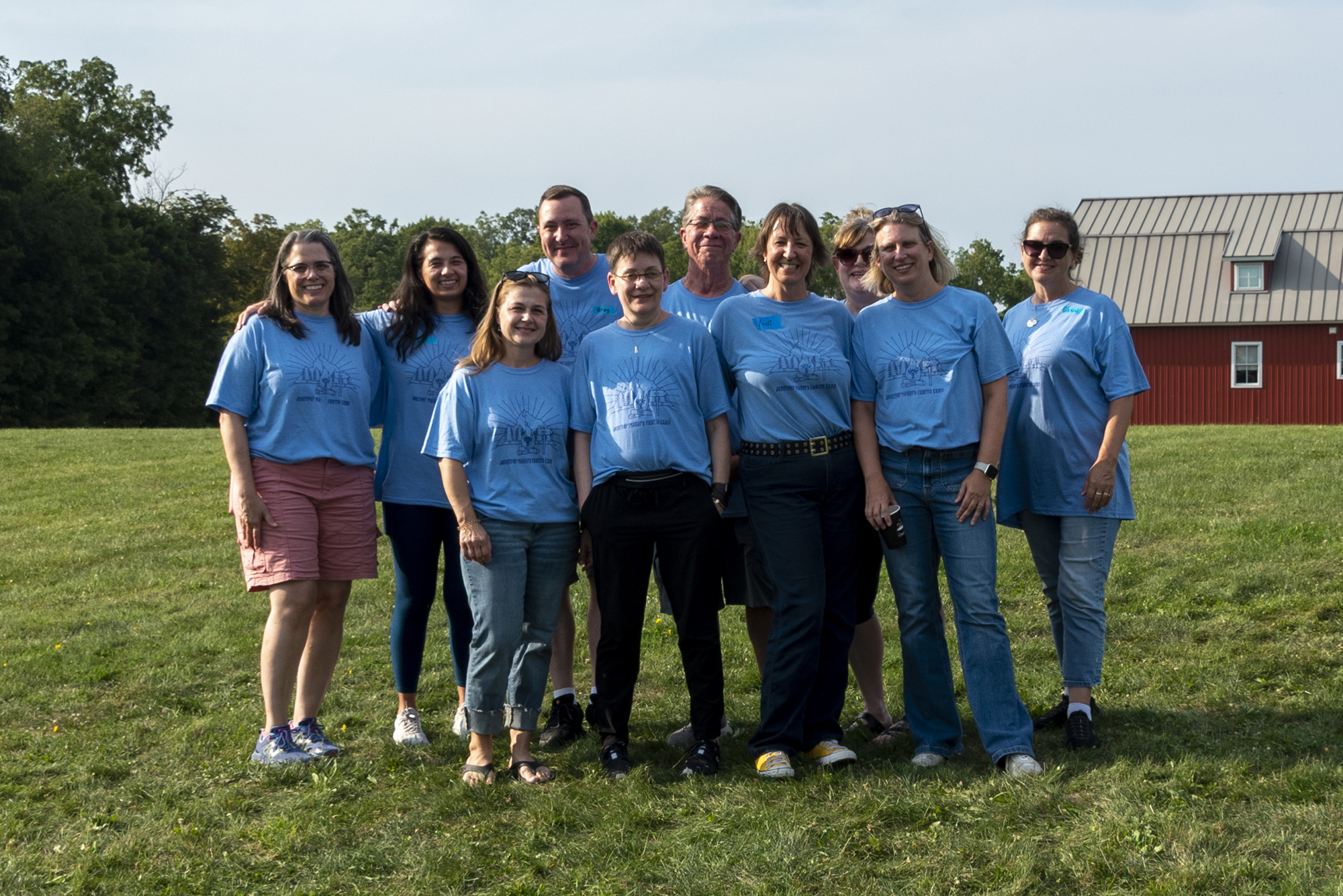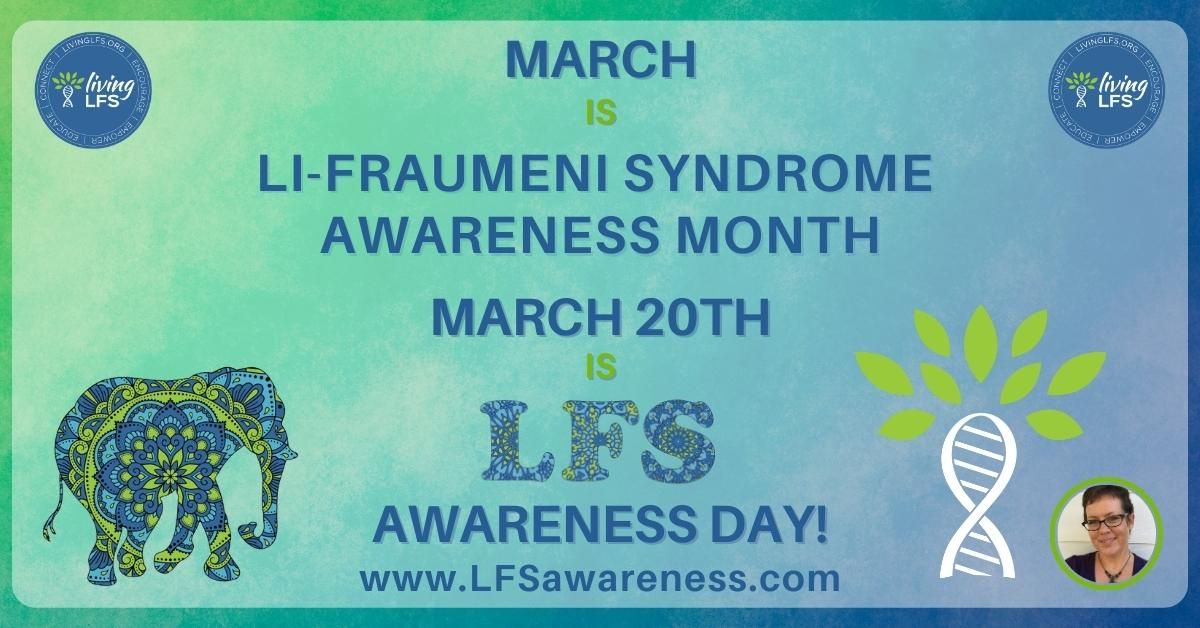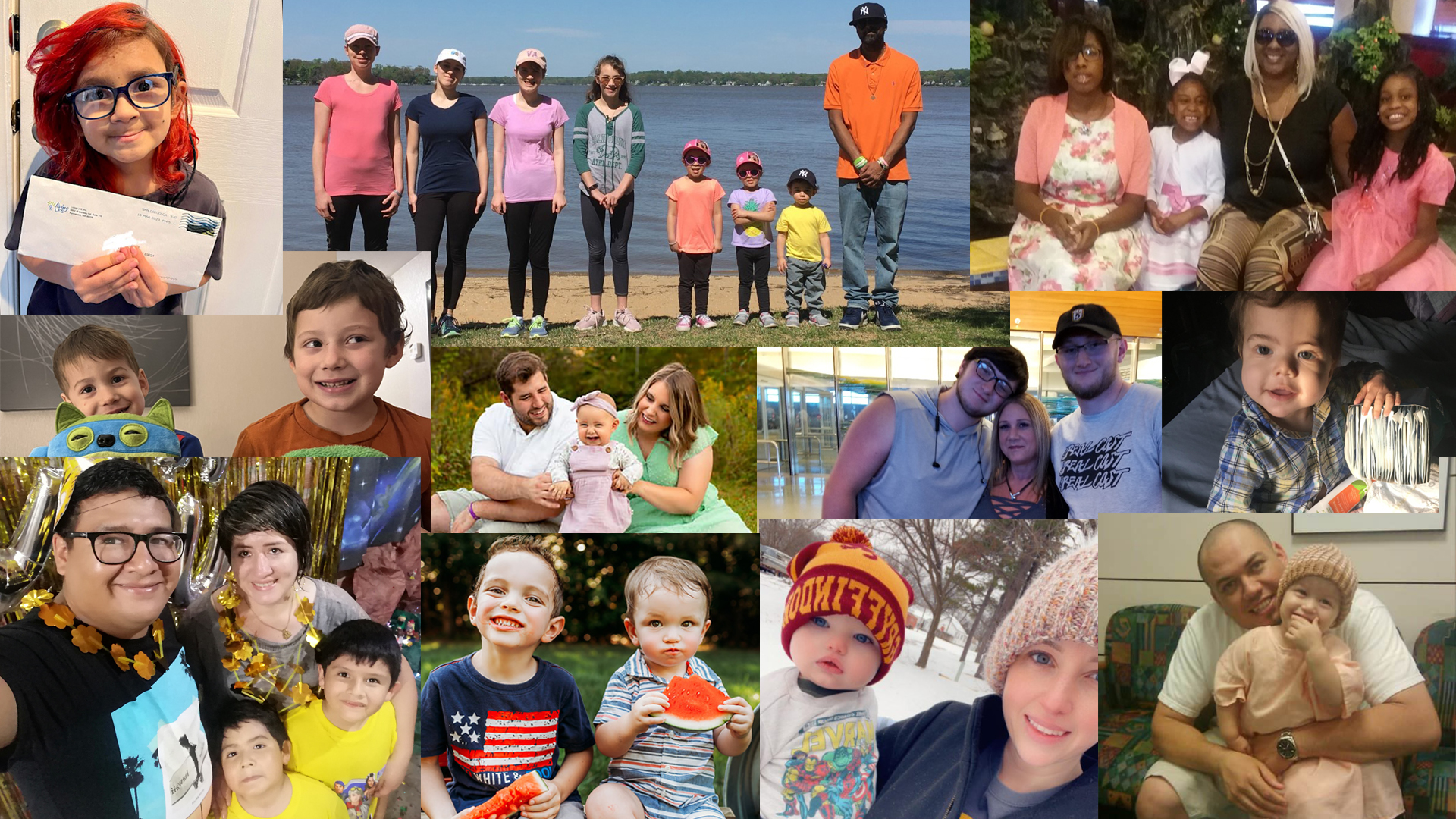I was doing some work on my computer on Thursday evening when the notification on Facebook got my attention. I checked in, and saw some LFS chatter. "Anyone watching Greys Anatomy?" Apparently there was a storyline about LFS. I took a break from what I was doing and went to watch.
I do not generally watch the show, but DVR it for when I need some brain candy. On a day where I need distraction from my worries, I might watch several episodes back to back, fast forwarding through the commercials. This makes my son laugh, as though we do not have enough doctors and hospitals in our lives. I am not at all caught up on who is seeing who... they are Sleepless in Seattle, because everyone is sleeping with each other.
At any rate, one of the medical storylines centered on a family who had a strong cancer history (breast, lung, pancreatic, testicular, brain and bone) One of their teenage daughters, Rory, who had a previous history of brain tumor, presented with likely osteosarcoma. There were questions about whether this was metastatic brain tumor or a novel cancer diagnosis. It was soon discovered that she also had pulmonary involvement. It was decided that she would have a CT with contrast as part of the staging process.
A large mass was found in her chest, complicating matters because it was vascular and would be a challenge to either remove or biopsy. It was unclear to the surgeons if this was a third primary cancer or metastatic osteosarcoma. Given that the patient was 16, and this was at least her second cancer diagnosis, her genetics were considered suspect.
The family was asked to submit saliva samples for genetic testing. They declare that they are "the family that beats cancer...that is what we do!"
A P53 mutation and discovery of Li-Fraumeni Syndrome was established for Rory the same evening that the chest CT and bone biopsy were done. No one had heard of LFS, and Bailey declared that it was really rare, only perhaps a hundred families in the literature. The residents were ordered to research on the web, and find case studies at the library in order to help this patient. (If they had only come here--I happen to know some mutants!
The sisters were both 16. (Which begs the question, are they twins? If not Irish twins, than they must have been fraternal, given the discussion that follows.) They talked about the problems with knowing your genetic status, Rory indicating that she wished that she didn't know. The healthy sister asks Karev if she must know, if she might make her own decision. Given her age, she was told that she could decide for herself. With encouragement from her sister, she decided not to find out if she carries the mutation.
Rory became unresponsive and was rushed to surgery where the tumor appeared to have ruptured. The residents worked together and it was suggested that they came up with a solution that they excitedly rush to share with the surgeons, but not in time, as the patient had died.
The healthy daughter, learning of her sister's death, impulsively asked for her genetic results and was told in a word, that she has Li-Fraumeni. She declared that she always wanted to be like her sister and now, she was.
The doctors, regretting the loss of their patient, speculate that they might be able to use this to help the remaining sister. The residents all go out for a drink.
I turned off the television. I returned to my work and saw many comments from folks who were discouraged with the ending. We really hate losing mutants, even fictional ones.
I was actually waiting for pathology results on some lymph nodes on my son, who incidentally completed treatment for osteosarcoma less than two years ago. He has recently been diagnosed with melanoma, stage IIIA...contingent on the status of these nodes. My daughter had adrenal cancer and a brain tumor. So, this story, while fiction, really isn't completely foreign to our experience with regard to the pediatric cancers involved. We just split them up between two kids...sigh...
I was personally uncomfortable watching them kill off 16 year old with osteosarcoma, likely with massive lung mets. On principle, it was not something I needed to see, given our current position. However, I am hopeful that by exposing the public to the genetic realities of LFS, that there might be more money directed in the research.
I am hopeful that doctors will become more aware and thoughtful, rather than calling a strong cancer history "bad luck," and failing to refer patients to genetic counselors. We have all faced some variation of this response at some time, I believe. While, no one would deny that repeated cancer diagnosis falls under the "Bad Luck" umbrella, there are things that can be done to change your luck if anyone bothers to find a genetic link.
We follow the Toronto protocol, and have discovered two cancers in our children that I absolutely know we would not have found in the earlier and more treatable stages, without being proactive. This recent melanoma is one. And while I am not happy with my son's current staging, which calls for a year of interferon, I know that he would have far more advanced disease if we did not know about his LFS status, and had him screened. We would be on a much, much harder road.
Looking at this episode from a fact checking perspective, there were some striking differences between the drama, and how things work in a real hospital.
1. Time warp
In order to make this work in a one hour show, leaving plenty of time for the hook-ups in the on call room (which, lets face it, keeps the ratings up) there is a compression of time. Biopsy results for osteosarcoma take a week, at least. They discuss your case at tumor board, and come up with a plan before you learn the results. Ours took nearly two weeks because they were sent out to another hospital for a second opinion.
Genetics results take even longer ...a month. And it is a staged process to test a family, generally speaking, with the proband being tested first, and if a mutation is found, then a second round of testing is done with parents and siblings of the proband (and sometimes this part is done in two stages), looking for the identical mutation. Even when you know what you are looking for, it takes weeks, not hours. I would love to have the genetic sequencer that Bailey had, because waiting is really hard.
2. I am pretty sure that LFS is tested with blood samples and not spit. I could be wrong, but everyone I have talked to rolls up a sleeve, rather than 'thinking about pickles,' in order to produce ample saliva. Might just be an easier devise for TV...they certainly have no problem showing lots of blood on this show...and open ghastly wounds. I am not really sure what that was about.
3. Genetics, both the decision to test and the manner in which those results are shared, is more controlled and much more thoughtful. A surgeon will not blurt out the results, particularly on the heels of revealing a poor outcome... in a public hallway. It is just not how it works.
4. Given that genetics results take a month to come in, treatment is generally well underway before that information is available. Further, when available, it is only one consideration among many. Sometimes radiation is used, even on mutants. The giant lung tumor would be what we call 'the shark closest to the boat' in this case. Real doctors would recognize that while radiation should be avoided, sometimes it is necessary. You want to be thoughtful in selecting your weapons, but ultimately you must battle the shark with whatever you have. The genetics would take a back seat.
There were some things that I thought were thoughtfully done.
1. Putting all of the "faults" aside, which I simply consider creative license, I am glad that they featured Li-Fraumeni. I think that the discussion between the sisters about the burden of "knowing" was the dramatic construct used to condense what happens in genetic counseling sessions. Knowing does not come without consequences, and you cannot un-ring the bell. Everyone does not want to know. You have to be ready. You have to be sure.
2. The remaining sister upon learning her status, declared that she was glad to be 'just like her" as she had always wanted. This may seem crazy, because no one wants this horrible predisposition to cancer. There can be survivors guilt, in a way, for someone with a negative status in a family of mutants. I have a mixed status family. I have not seen this in my kids, but am on the alert for it. It is common for people to struggle with being negative.
3. The part where none of the surgeons had ever heard of Li-Fraumeni, well, that is not just possible, but probable. We have all had to explain it to doctors at some time...sometimes google searching it for them in the office, or bringing in papers that explain the syndrome. It is very rare, as Bailey said. perhaps a hundred of families in the literature. But with testing becoming more common, and less expensive, more people are being diagnosed all the time. Unfortunately.
4. The creative energy of the residents in figuring out a solution...well, I am hopeful about this. There are physicians who are intellectually curious and passionately determined to help. It will not happen in an afternoon of brainstorming as the writers of this episode portrayed it. But, in that same representative fashion, I am hopeful that there will be greater attention brought to Li-Fraumeni, and to the considerations of our genetics. The residents represent the positive collaborative effect that is currently happening with researchers from institutions all over the world...who study and work together to find solutions for us.
I hope to meet these researchers in the bar at the end of the day. The first round will be on me.



One Response
Hi Ann. I enjoyed watching your comment on this particular episode of Grey's Anatomy. I am currently reading abt LFS, and your website cracked my ribs to the very end. Nice one!